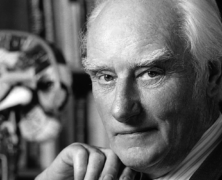I write this at an unusual time of the sixth year experience; the intermediate period between the graduation and the Leaving Cert itself, both traditions very different this year than before. As I prepare to conclude my time as a student of Coláiste an Spioraid Naoimh, I am compelled to reflect on my time in this school, and all that it has given me. My secondary school experience always had a healthy dose of the unexpected and unplanned. From the dreadfully unseasonable rainout on the heights of Mangerton to the abrupt closure of schools in fifth year to the surreal experience of having to watch a graduation ceremony rather than experience it in the traditional way, unpredictability was a constant theme of the past six years. I’ve struggled unpredictability in the past. Ever since my early childhood, I have always preferred structure and planning to more chaotic situations so you can imagine the chaos wrought by a deadly pandemic and recurring lockdown – interesting to say the very least. But, truth be told, if there’s something I’ve learned from my adolescence it’s that life will always be finding new ways to challenge you. I started my journey on a Friday at the end of August and I prepare to finish it another Friday this week. Countless tests, excursions and exciting situations are enclosed within those six years. Every school year brought its own unique challenge. First Year of course began with the daunting experience of beginning a whole new chapter of my life while Second Year brought a clear idea of the kind of work that would be expected of me. Third Year had the Junior Cert. which seemed monstrous back then yet rather quaint through rose-tinted glasses. Transition Year tampered with the...
Trump was undone by ignoring Covid. He might have won otherwise....
posted by Cloud
Courtney Weaver writes in the FT Weekend Magazine (Oct 3/4 2020) that a huge part of Donald Trump’s support is the Evangelicals. Before you wonder who they are, just consider that there are an estimated sixty million of them in the US and it’s judged that about 85% of them voted for Trump in the 2020 election. That’s, well, a lot! So who are they? Well for one, their numbers are increasing because of “growing support among non-white evangelicals.” Latino immigrants to the US sometimes come from socialist countries in Middle and South America and are not impressed by the Democratic Party’s occasionally socialistic leanings. (For the best exploration you’re likely to find anywhere of what socialism is, see “Socialism: What is it and why do we need it?” by Graham Harrington on this website.) Evangelicals are preachers who claim to know God and often come on radio and TV telling people about God. They argue that the Bible should govern how we live our lives. They’re often represented by figures like Billy Graham and Jerry Falwell. Graham was so popular he was called “America’s Preacher” and Falwell, well you get an idea about him from this quote in reference to the 1954 Supreme Court decision to end segregation in schools: “If Chief Justice Warren and his associates had known God’s word and had desired to do the Lord’s will, I am quite confident that the 1954 decision would never have been made. The facilities should be separate. When God has drawn a line of distinction, we should not attempt to cross that line…The true Negro does not want integration…. He realizes his potential is far better among his own race.” (Source: Britannica.com) Check out Martin Luther King’s Letter from Jail, also on this...
What’s going on in America? Edward Luce explains....
posted by Cloud
What’s wrong with the American Constitution? A recent Edward Luce article in the Financial Times Weekend Magazine (October 17/18 2020) explains a lot about what’s going on in America. Like all good stories, it’s about people. He begins with Rosa Brooks, a law professor, who asks her students what they think of the American Constitution which is the user’s manual for America and it’s 233 years old. Her students are proud of it. She asks them if they’d just as quickly use 233 year old medical text books to study medicine today or 233 year old maps to navigate the seas. Hmm. The reality of the American Constitution is that it was a messy, more or less thrown-together document that tried to keep everybody happy in a very different age – the age of slavery. It calls for the separation of powers between the legislature (Congress,) the executive (the President,) and the judiciary (the Supreme Court.) These three power centres are supposed to be independent of each other. They’re each supposed to watch the other two carefully to make sure there’s no funny business. The point was to avoid ever returning to the way things had been in America before the American War of Independence – rule by a despotic king from afar (King George III of England.) Conservatives and liberals at war All that sounds pretty reasonable maybe but one doesn’t have to be a legal expert to see that things aren’t working out so well at present. Mostly the problem is the country is split down the middle into two competing camps: conservatism and liberalism, often known as the right and the left. On the right you have those who want to return to the days of the Constitution’s birth; they’re known as “originalists.” Think of people who take the Bible literally: do you believe that Adam and Eve actually existed, that whole bit about the snake and apple? Now fair enough if you do but it’s probably safe to assume that most people don’t take it literally; they likely view it as a parable, a demonstrative story to help us think about sin. Well, originalists take the Constitution literally which means that they believe that it should still be the lodestar, the guide, the rule book, never mind that there were only 4 million Americans when it was written or that women, Native Americans and blacks didn’t feature in the politics of the day. On the left tend to be those who believe that there are historical injustices (think of Black Lives Matter for instance) that need redressing and that the Constitution, while a great achievement of its day, is kind of out-of-date by now. But this of course is a simplification: there are far more groups and ideas on either side which complicates things even more. With Trump, the system of three power sources acting as watchdogs for each other has broken down. Trump doesn’t show any respect for it; neither therefore do his followers and there are 70 million of those. When you’ve got 70 million fans of course you’re going to keep making that pop music! Who’s the boss of the Constitution? The guardians of the Constitution, the people who decide what the Constitution actually means in real life are those on the Supreme Court. Clearly, Trump wants his own people in there – so do the Democrats. The problem is that the job of being a Supreme Court Justice is for life and it’s not easy to get rid of someone whose loyalties are to the other side. When a liberal Justice named Ruth Bader Ginsburg died recently Trump took the opportunity to replace her with Amy Coney Barrett who’s a member of People of Praise who believe in traditional gender roles: women are subordinate to men. With Barrett now in place the Supreme Court is mostly conservative: it’s 6-3. That means...
Martin Luther King’s letter from prison, April 16, 1963...
posted by Cloud
Martin Luther King was imprisoned because the peaceful direct action in which he was involved and which he asserted was necessary was deemed illegal by law in the state of Alabama. His letter is addressed to his “fellow clergymen” because he believes their criticism of him is “sincerely set forth” though he admits he doesn’t usually respond to such criticism since to do so would take up all his time such is the volume of opposition to his activities. The outsider myth His argument in his letter is that he is not an outsider, not least because there are 85 affiliated organisations in the South with which he has legitimate business. (This charge of being an outsider is very cleverly taken up again later in the letter.) He was invited to the South because of these “organisational ties” which I think is a challenge to the church leaders who were likely threatened by the sheer force of his personality and the “inescapable network of mutuality” he identifies in Alabama and elsewhere. Are these detractors worried that they are those who “stand on the sideline and mouth pious irrelevances and sanctimonious trivialities”? Toward the end of the letter King expertly comes around again to the notion of the outsider in reference to “the early Christians [who, when they] entered a town [discommoded] the people in power” and suffered accusations of being “disturbers of the peace and outside agitators.” Underlying conditions and effects He is in Alabama and he is in prison because “injustice anywhere is a threat to justice anywhere” and “whatever affects one directly, affects all indirectly.” This style of his of echoing (you see it repeatedly in the letter – no pun intended!) comes from the Bible which is often written with the...
Two letters from fathers to sons...
posted by Cloud
Julius Rosenberg wrote a letter to his son Michael on August 16th 1951. Julius was, a few months earlier, sentenced to death by Judge Irving Kaufman for selling atomic secrets to the Russians at a time when the US was “engaged in a life and death struggle with a completely different system,” that is, Communist Russia. Julius’ crime was to threaten democratic institutions not to mention American lives since the atom bomb was “a missile of destruction which can wipe out millions of Americans.” A few months later Julius wrote to his son Michael saying that he was confident that he and his wife Ethel, “will be set free because Mommy and I are innocent and we will fight in every possible way and through the courts to win our freedom as soon as possible.” In that August 16 letter, Julius wrote to Michael that he’d make more pictures of trains, buses, cars and boats if he liked. He signed it, “Your own Daddy – Julius.” A couple of years later Francis Crick wrote to his twelve-year-old son who was also called Michael that he had, along with Jim Watson, discovered the basic structure of DNA. He tells his son that “[their] structure is very beautiful” and that “D.N.A. can be thought of roughly as a very long chain with flat bits sticking out.” He draws a diagram of the double helix for his son. He goes on to assert that “we think we have found the basic copying mechanism by which life comes from life.” In 1962 Crick and two others received the Nobel Prize for their work. References from Schrecker, Ellen, The Age of McCarthyism: A Brief History with Documents, St. Martin’s Press, 1994 and Usher, Shaun (ed.) Letters of Note: Correspondence...
If Martin Luther could tweet...
posted by Cloud
I, Martin Luther are disgraced with the Catholic Church. They proceed to lie about the Bible to the innocent people who cannot speak Latin. They sell indulgences to people who are rich. This means that people whom are rich and bad can go straight to heaven, the poor people who are poor and good will spend a long time in purgatory. I believe that you must suffer to go to heaven. Check out my web page of 95 theses of how awful the catholic church is....
Doubt
posted by Cloud
I recently spoke with a man who met Robert Kennedy. There can’t be too many of them left about the place. It was years ago now, back in the sixties, I think, when he was in Washington DC on some kind of GAA junket, probably to promote the sport, to remind the Diaspora in the States of what it had left behind it back on the Emerald Isle. Robert Kennedy was his brother Jack’s Attorney General, the chief lawyer in the country, the legal adviser to the president, the representative of the law. I thought of politics back then and how it must have seemed that the country was being remade what with Civil Rights and the Cold War, the Red Scare, McCarthyism, the era of Free Love and the rise of the Teenager with a capital T. This was the eve of the Vietnam War and the exportation of at least 58,000 American lives, young men for the most part who never grew to be old men. I thought of that word “veteran” and reflected that my interlocutor was in his way, in his own ways, a veteran too, like we all are. We grow into that identity, fill the long cloak of that stature the more we live, the greater the repertoire we amass. Story after story gets told and experiences come and go; we encounter others and their lives and compare them with our own and probably never fully appreciate the full story, the complicated richness of existence. Then the silence. When, upon the next scandal or concern or affair of state, we think we see a pattern, something to decry over a pint or in a breathless fashion between two daily chores, we arrogate to ourselves a wisdom, the illusion...
Aesop’s Fables
posted by Cloud
I recently bought a collection of Aesop’s Fables for a few euro somewhere. It’s got the hare and the tortoise on the cover and the tortoise, without looking behind him, seems to be able to sense the hare’s presence. His neck is outstretched and his mouth is tight; he wants to win alright and hasn’t had a rest. “I’ve worked too hard for this to let it slip from my grasp,” he appears to think. The hare is alarmed, his ears drawn back, his body stretched out, his eyes alert. He knows he’s been complacent. He thought he had it in the bag as it were. He had over-extended himself, if only in his imagination, too early in the race, oddly enough by having a sleep. Now he’s really under pressure. It’s reminiscent of another Fable, that of the Astronomer who goes about at night looking up at the stars in wonder and not looking where he’s going. Inevitably he falls down a well and a stranger appears at the top of the well and says to him, “Why, in striving to pry into heaven, do you not see what is on earth?” I thought about all the money we spend on exploration of space and on self-driving cars and Presidential dinners when there are so many more deserving causes like homing people and feeding the starving children of the world. Why are we always reaching for things that are far away and reflecting on how great we are when we manage to reach them when, within our grasp and without too much effort or ingenuity, we could help those who need help now? There’s a fable for every occasion, it seems. In that of The Hart and the Vine, a hart is chased...
Open Night 2018
posted by Cloud
1. Go ahead, judge a book by its cover. What does it look like? It’s got an elephant on it and he’s jumping in the air only he’s wearing pyjamas and he’s got a cigar in his mouth. There’s a lot of yellow behind him and you think first it’s the sun but it’s actually an enormous orange and it’s rolling toward him and the book is called Get Out! Get Out Now! 2. You’re having lunch with a friend. Your friend gets a call in the middle of the meal. Write down your friends part of the conversation. Yes I gladly go with you there is a brilliant movie in! Yo’ll go That’s great I’ll look forward to seeing you at eight. see ya there! 3. The general manager of the New York Yankees’ personal to do list LOSE TO THE RED SOX!!!!!!! 4. Write a bucket list for your favourite superhero Die Eat Drink Walk (optional) run 5. Describe an eccentric person in action. Mr. Wilson threw a basketball at my cat then splashed me with holy water and mooed at me. He then proceeded to yell a story about Jesus fighting Donald Trump. 6. Write an ode to an onion. Oh dearest onion, You are so fun-ion, You have many layers, Not that I care!...
The media and the way they handle shootings by Michael Keohane...
posted by Cloud
I’ll begin by saying that unlike many I understand that most news is biased. It’s an unavoidable fact of life and something I’ve learned to live with. That said, regardless of the political allegiances of news companies, the way that they handle mass shootings (and smaller ones) is just purely idiotic. I am, admittedly, pro gun. I think that they are a good thing to have in society. Contrary to what many might believe, that does not mean that I love mass shootings. I despise them and their perpetrators. Chances are that I care about shootings that happen in the U.S more than most liberals do. My solution just happens not to be banning firearms in the U.S. There is, however, one thing that really annoys me about news networks’ coverage of mass shootings and that is the way that they handle the perpetrators. This is a problem for both conservative and liberal news agencies. I get that news of the tragedy must be spread, that’s fairly obvious. What is unnecessary, however, is plastering the name of the shooter all over your network and website etc. I don’t know the names of any mass shooters and if I did I would refrain from saying them. Why? Because that’s what they want us to do. People go on rampages because they have nothing left. They want to be remembered for good or for bad. So why in God’s name would you go around making the shooter a rockstar for several weeks, or even years in some cases? This is a problem for both liberal and conservative news networks, but I see it on liberal networks more often. It’s truly ironic, wanting to stop mass shootings and then granting the final wish of the very people...
Angry Rant from an Angry Man by Jason Scully...
posted by Cloud
Hello and welcome to an angry rant from an angry man. You’re certainly in for a treat on this day of days because you can now be battered brutally over the head by none other than me, the most petty person you will ever have the honour of meeting and I will argue to the death with anyone who disagrees to even the slightest degree with that sentiment. Now that I’ve managed to turn even my intro into a rant in its own right we can now start raving about today’s topic. Alrighty, I wanted to talk about video games, then movies, then books, then music and then TV but I realised that they all share the same problem that makes them all equally crap in my eyes and so it begins, the quest for me, through my pointless rantings, to educate you on the one thing that is ruining not one but several multi-billion dollar industries. Now the non-super high IQ Rick and Morty fans in the audience may be wondering, “How can you claim to know what’s ruining literally all of modern-day media?” Surely if you do then the people in Hollywood who stand to make millions off such a revelation would act on it, and you’re a kid on the internet typing an essay at midnight because you drink too much coffee. And you’re right, but what if I told you that there lies both parts of the same problem that has been killing media since the 1980’s. (Ya see what I did there? Yes I know it wasn’t very funny, why don’t you try writing this?) Part 1: You’re part of The Problem., Most people don’t have a firm grasp on what makes modern art in media “good,”yet like those...
Open Night 2017
posted by Cloud
something more you’d like to know about “History.” (Jason Foley) Imagine yourself being eight years old. what would you tell yourself. “Be nice to people.” “I’m eight years old” (Hugh) what’s the worst nightmare you remember. “Vegetables.” (Michael Buckley) something more you’d like to know about “Life.” last thing you’d want to do in life “Jump off the Empire State building!” (Gene) what you ate for breakfast “Cornflakes.” “I ate cornflakes” your best birthday “2014 when I got a trampoline.” (Gavin) your favourite hiding spot “Under with the blanket covering the sides.” (Liam Cassidy) ...
Watch This Now! “Live From Daryl’s House”...
posted by Cloud
It probably happened by accident. I couldn’t have known quite how good things could get. My memory of it is this: I happened upon a YouTube tutorial on how to set up an electric guitar given by Joe Walsh. “Setting up” a guitar means servicing it so that it’s ready to play and will perform reliably. I knew this guy. Where’ve I’ve seen him before? He’s some ageing rocker who speaks with a slight slur. Wasn’t there something about a career of drug abuse and near-death experiences? I think curiosity led me to his performances on a show hosted by Daryl Hall of whom I was only peripherally aware theretofore. He was half of one of the most successful songwriting duos of all time, Hall and Oates, who’ve had a plethora of their own hits and have written for other people too. They did “Out of Touch,” “Maneater,” “Private Eyes” and “Sara Smile.” There is a lot more. It turns out Joe Walsh was in TheEagles for about a decade until the band spit up. He’d had success before that with James Gang and some solo stuff. When The Eagles broke up he spent about fifteen years drinking heavily (vodka) and taking drugs (cocaine). His other vice was Camel Light cigarettes. And here he was in a room with Daryl Hall on YouTube playing songs from his new album like “Wrecking Ball” (a welcome rival to Miley Cyrus) and old ones like “Funk #49” (a must listen for anyone but especially for fans of guitar). It wasn’t all about Joe. Daryl Hall invites people to come and play, some legendary artists and lesser-known ones. They all get in a room and they play. It’s a simple formula but utterly compelling. There’s the talent for...
Manchester United?
posted by Cloud
There’s a lot today about the Manchester bomb. The Irish Times carries front-page photos of two pretty young girls, Saffie Rose Roussos (8) and Georgina Callander (18) who were both murdered by the suspected bomber, twenty-two year-old Salman Ramadan Abedi, “a Manchester-born son of Libyan refugees.” Simon Carswell writes of how Nadia Abdulmalek and Deborah Henley “embraced and cried among a crowd of thousands at Manchester Town Hall at a vigil” even though culturally they are very different. Donald Trump called the bomber a “loser.” Fintan O’Toole writes that “mass murder is easy and the more outrageous it is the easier it gets. Flesh is soft and easily shredded. Lives are fragile and easily shattered. Decency, humanity, compassion are flimsy and precarious. The barriers that separate earth from hell and civilization from barbarism are porous and full of holes…” “Porous and full of holes”? The editorial says that “even by the standards of the decade…[Manchester] was an atrocity of singular, unspeakable cruelty.” (Goggy used to pronounce it “cruelity” with an added syllable.) Britain, it goes on, “must again confront two grim realities: that the threat of indiscriminate atrocities has become a regular feature of daily life in the world’s major cities, and that free societies cannot entirely eliminate that threat without undermining the very freedoms that define them.” I’m reminded of something Solzenitsyn wrote about America, something about why there was so much (or any) joy and triumph. I’m thinking of The Proud Tower too and how more than a century ago the people we now called Islamic terrorists were known as Anarchists and hoped to changed society or undo it altogether with a single deed, one that would initiate a further series of earth-shattering events and a total realignment of forces and structures....
The face of evil? The Rosenberg Executions...
posted by Cloud
I’m reading the death sentence handed down to Julius and Ethel Rosenberg by Judge Irving Kaufman in April 1951. The Rosenbergs were accused of spying, of passing nuclear secrets to the Russians. The judge argues that, by his own admission, Julius Rosenberg got a better and fairer trial in America than he could have hoped for in Russia. This galls Kaufman who says that “It is to America’s credit that it took the pains and exerted the effort which it did in the trial.” Still, the defendants devoted themselves to “the Russian ideology of denial of God, denial of the sanctity of the individual, and aggression against free men everywhere.” No wonder then that Judge Kaufman considers the crime for which the Rosenbergs are about to be sentenced to death “worse than murder.” After all, as he argues, “Plain deliberate contemplated murder is dwarfed in magnitude by comparison with the crime you have committed.” The charges expand as he speaks, getting so large as to blame the Rosenbergs for the death toll (at that stage 50,000) in the Korean War: “I believe your conduct in putting into the hands of the Russians the A-bomb years before our best scientists predicted Russia would perfect the bomb has already caused, in my opinion, the Communist aggression in Korea.” And it gets worse because “who knows but that millions more of innocent people may pay the price of your treason.” Julius and Ethel Rosenberg went to the electric chair in June 1953. Before they died they wrote letters to each other, to their children. In one letter Julius wrote to his sons Michael and Robert. To Michael he wrote: “I want to tell you that I am confident in the end we will be set free...
My Feelings About Cheese...
posted by Cloud
My feelings about cheese aren’t straight-forward and why should they be? Who amongst the general populace, least of all vegans perhaps, could feel utterly secure in eating what is the animal equivalent of breast milk? And yet, despite the fact that cheese is exactly this, it is a most popular food stuff, eaten every day by myriad people and in a dizzying array of forms. One can’t help referencing Borat here where he asks the unsuspecting store attendant “What is this?” The answer of course is “Cheese.” But he keeps on asking anyway despite the iron predictability of the answer. The reason he is able to ask repeatedly without seeming to be too unreasonable is because of how many types of cheese there are. The display must be thirty feet long and there is row upon row of cheese products with different packaging, different applications, different demographics. One can easily imagine that there is the block of cheese for the man or maybe the no-nonsense single adult who likes to wield and knife and who enjoys eating chunks of cheese, to choose his own width of slice you might say. You know there’s going to be the sliced cheese with the robust and rigid and wholly wasteful plastic packaging for the mother of two who hasn’t time to slice the cheese for her little darlings and who can never judge the appropriate width of slice anyway. The sliced cheese is also directed I suspect squarely at the lover of the toasted sandwich. Then there’s the grated cheese, I mean the stuff that’s grated for you. This is for the pizza makers, the hipsters. Very few eat the grated stuff in fistfuls while you can well imagine plenty of people enjoying a slice – whether...
THE DEPLORABLE DAMNATION OF THE MODERN LUNCHEONING MAN by Cian Morey...
posted by Cloud
One of my few solemn and unwavering beliefs is that mankind has never been graced with a greater stroke of genius than The Ham Sandwich. In 200,000 years of – for want of a better word – life, the human race has accomplished nothing approaching the culinary creativity, the artistic acumen or the sheer splendid simplicity of that most cherished foodstuff. It is (in short) the ideal intersection of all the efficiency, economy and ease that modern life necessitates, and the rich, rewarding rapture that fine dining bestows, sprinkled throughout with just a little dash of getting the job done and filling you up damn well for the rest of the good old diem until you get your literal teeth into the next one. Fast, functional and fairly fully flavouricious, It has never once let us down. Woe betide, ladies and gentlemen, were we ever to find ourselves bereft of the good work of The Ham Sandwich, woe betide. Unfortunately, we find ourselves increasingly bereft of the good work of The Ham Sandwich. It must be realised here that the crisis in question has been steadily simmering toward an eruption for years. This is not a sudden, unstoppable catastrophe; this is rather the minimum point of a gradual plunge in global standards that society not only failed to prevent but actively encouraged. Even I allowed this plague to fester under my not-inconsiderable nose for too long without taking notice or action. We are all to blame for the downfall of The Ham Sandwich, and this is a tragic truth up to which we must face if we are to make any vertical progress out of the whacking big hole we’ve so effectively eaten ourselves into. Allow me to illustrate this approaching apocalypse with a...
OUR ANNUS HORRIBILIS: A Few Words On 2016 by Cian Morey...
posted by Cloud
At last. Rarely if ever will the words “Happy New Year” be uttered with such genuine goodwill as they are now, as the world bids good riddance to 2016. In decades to come, grandchildren will flock to the feet of their fireside elders to lap up the legends of “the year it all went wrong”. Poems will be penned; songs will be sung; the history books of the future will look back on all this, say, “So yeah, that happened” and skip sheepishly on to the next twelve months. 2016 was literally the most hated year of the century. I’m reluctant to talk about this as a sort of detached, omniscient narrator declaring all manner of things like, “Meanwhile in the Cincinnati Zoo, Death was making yet another guerrilla strike”. This year has had a deeper effect than that on most of us. But I’m also reluctant to get too personal, as too many of us already have. God’s landline isn’t in the Golden Pages (trust me, I’ve looked) and no amount of screaming down the sidebars of Facebook can change a single thing. Maybe a sort of analysis, then. Not a bland police report, not a bloodbath. A case-study, if you will. Who knows? Maybe 2016 can teach us one or two things. Politically, most people would find some way to agree that the last twelve months didn’t exactly cut the proverbial mustard. From our current perspective in our new post-Obama world, it might be hard to remember just how hopeless it all felt back in February’s General Election, when we thought we had seen the worst of it with the prospect of a Gerry Adams-led Ireland. Ha. The latter half of 2016 began with the bloody end of a reasonably steady period...

















